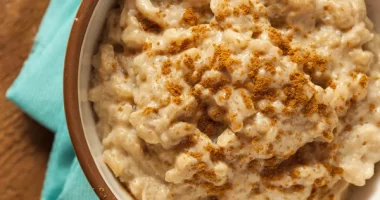Teenagers should not necessarily avoid bread but limit their intake of refined grain bread or products and focus more on eating whole grain bread to ensure adequate nutrition, reduced disease risk, and optimal health during the critical adolescent years.
Adolescents have higher nutritional needs compared to adults due to rapid growth and development. Failing to meet these needs through a balanced diet can lead to stunted growth, delayed puberty, menstrual irregularities, and other health issues.
As a teenager, it is important to be mindful of the type of bread you consume and how much is eaten. White bread, pastries, and other refined grain products are often high in added sugars, unhealthy fats, and calories while lacking in important nutrients like fiber, vitamins, and minerals. Consuming too many of these types of breads can contribute to weight gain, increased risk of chronic diseases, and nutrient deficiencies in adolescents. Additionally, the American Academy of Dermatology, revealed that foods that cause your blood sugar to rise quickly, such as white bread and fries, may worsen acne.
On the other hand, whole grain breads like whole wheat and multigrain provide complex carbohydrates, fiber, and a variety of vitamins and minerals essential for growth and development during the teenage years.
Advantages of Eating Whole Grain Breads
Replacing refined grains with whole grains in your diet can provide significant health benefits such as:
- Reduced risk of heart disease: Eating whole grains is associated with a lower risk of heart disease, the leading cause of death worldwide. One study show that consuming 3 servings of whole grains per day may lower heart disease risk by up to 22%.
- Lower risk of type 2 diabetes: Whole grains have been shown to help regulate blood sugar levels and reduce the risk of developing type 2 diabetes by 20%–30%, Food Science and Nutrition.
- Improved digestive health: The high fiber content in whole grains helps promote regular bowel movements and may reduce the risk of certain digestive issues like constipation.
- Potential longevity benefits: Some research suggests that eating more whole grains may contribute to increased lifespan by lowering inflammation and the risk of chronic diseases.
- Nutrient density: Whole grains are packed with important vitamins, minerals, antioxidants, and phytochemicals that are stripped away in the refining process for refined grains.
- Weight management: The fiber and nutrients in whole grains can help you feel fuller for longer, which may aid in weight control and prevent obesity.
10 Best Foods For Teenagers To Eat
1. Whole Grain Breads and Pastas – Whole grain breads and pastas provide complex carbohydrates, fiber, B vitamins, iron, and other essential nutrients that fuel growth and development during the teenage years. Look for 100% whole wheat or whole grain varieties as the first ingredient on the label.
2. Lean Proteins – Lean proteins like chicken, turkey, fish, eggs, beans, lentils, and nuts are crucial for building and repairing tissues as teens grow rapidly. Aim for a variety of lean protein sources to get complete proteins and a range of nutrients.
3. Fruits and Vegetables – Fruits and vegetables provide vitamins, minerals, fiber, and antioxidants that support overall health. Teens should aim for at least 5 servings per day, choosing a variety of colors to get different nutrients. Good options include berries, mangoes, leafy greens, sweet potatoes, and avocados.
4. Low-Fat or Fat-Free Dairy – Dairy products like milk, yogurt, and cheese are excellent sources of calcium and vitamin D for building strong bones during the critical teenage years. Choose low-fat or fat-free varieties to limit saturated fat and calories.
5. Nuts and Seeds – Nuts and seeds provide healthy fats, protein, fiber, and a variety of vitamins and minerals. They make great snacks or additions to meals. Some good options are almonds, walnuts, chia seeds, and flaxseeds.
6. Oats – Oats are a whole grain that provides complex carbs, fiber, protein, and minerals like iron and magnesium. Oatmeal makes a filling, nutritious breakfast that can be topped with fruit, nuts, cinnamon, and other healthy additions.
7. Fatty Fish – Fatty fish like salmon, tuna, mackerel, and sardines are rich in omega-3 fatty acids, which are important for brain health and development. Aim for 2-3 servings per week.
8. Beans and Lentils – Beans and lentils are excellent sources of plant-based protein, fiber, and complex carbs. They also provide iron, folate, and other key nutrients. Incorporate them into soups, chilis, rice dishes, and more.
9. Eggs – Eggs are a versatile, affordable source of high-quality protein, vitamins, and minerals. They can be enjoyed for breakfast, as a snack, or as part of a meal.
10. Water – Staying hydrated is essential for health, especially during the teenage years. Aim for at least 6-8 glasses of water per day. Avoid sugary drinks like soda, juice, and sports drinks which can contribute to excess calories and sugar.
The key is to eat a balanced diet with a variety of nutrient-dense foods from all the food groups. Limit processed foods, sugary treats, and unhealthy fats. Pair these healthy foods with regular physical activity for optimal health and growth during the teenage years.
Also read: 8 Foods That Cause Belly Bloating Aside From Bread









